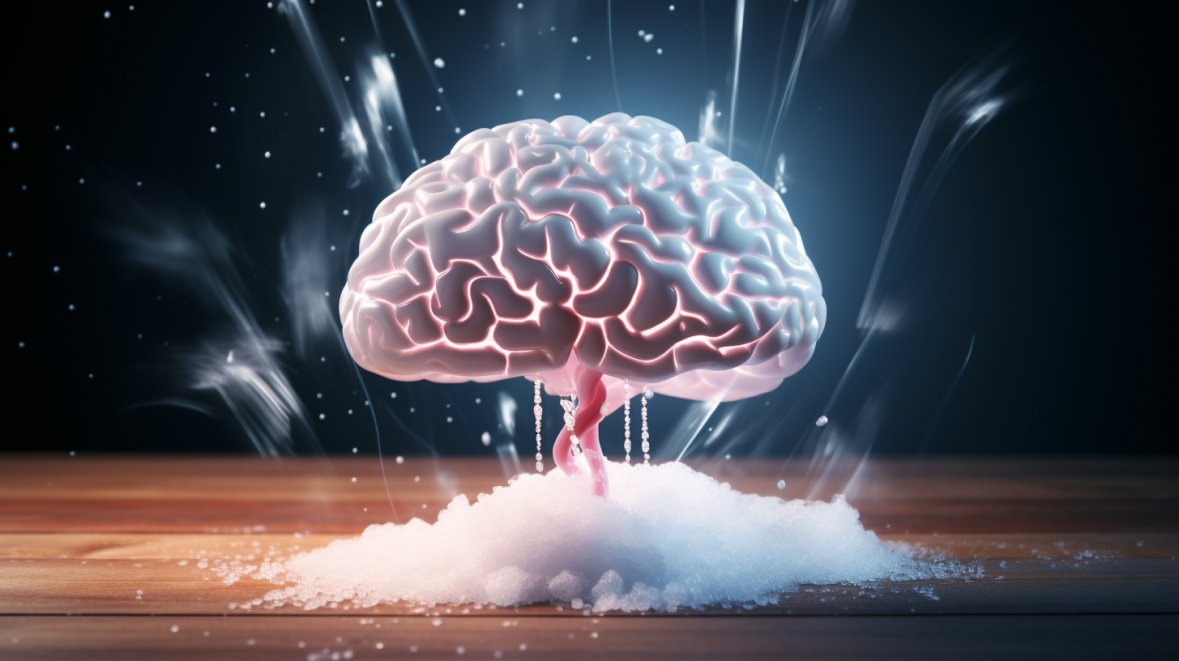Monosodium glutamate (MSG) is a common food additive used to enhance flavor.
But there have been long-standing concerns that MSG could be harmful to the brain.
Key Facts:
- MSG is the sodium salt of glutamate, an amino acid that functions as an excitatory neurotransmitter in the brain.
- In the 1970s, studies in mice linked injections of huge doses of MSG during early development to brain lesions and later obesity and reproductive issues. This raised concerns about MSG safety.
- But numerous follow-up studies in rodents, monkeys and humans overwhelmingly indicate MSG is safe at typical dietary intake levels.
- Very high MSG doses are needed to significantly increase glutamate levels in blood. But the blood-brain barrier restricts glutamate’s entry into the brain.
- Even large MSG doses don’t raise blood glutamate enough to push significant amounts into the brain or affect pituitary hormone secretion, indicating no effect on the hypothalamus.
- Chronic high dietary MSG intake in rodents produces no hypothalamic lesions, reproductive/growth effects or brain glutamate changes seen with MSG injection.
- For safety, monkey and human data are most important. Monkeys show no brain lesions from high MSG doses.
- In humans, MSG intake is self-limiting due to taste aversion. Highest tested doses have no effect on pituitary hormones.
- Overall, the science indicates MSG is safe for human brain function at typical dietary intake levels.
Source: Ann Nutr Metab.
The Glutamate Neurotransmitter
Glutamate is an amino acid that serves as the main excitatory neurotransmitter in the mammalian central nervous system.
It plays key roles in cognitive functions like learning and memory.
Glutamate binds to receptors on neuronal membranes and triggers depolarization, firing off nerve impulses between neurons.
But too much glutamate overstimulates neurons, causing excitotoxicity and cell death.
This fact led to concerns that increased glutamate intake from MSG could be toxic to brain cells.
Early Rodent Studies on MSG
In 1969, John Olney reported that injecting monosodium glutamate into newborn mice caused damage to neurons in the hypothalamus region of the brain.
The affected neurons control pituitary hormone secretion.
Later in life, the MSG-injected mice showed obesity, stunted growth and impaired fertility.
The effects were hypothesized to result from glutamate-induced lesions in the hypothalamus during early development.
This seminal study raised concerns about the safety of dietary MSG intake in humans, especially for infants and pregnant women.
It launched many follow-up rodent studies on MSG’s effects on the brain and body.
Most studies injected MSG or fed excessively high doses to determine effects on brain lesions, hormone secretion, and later outcomes like obesity.
But rodents metabolize glutamate differently than humans and have a less developed blood brain barrier early in life.
So while these studies identified potential hazards, rodent data must be interpreted cautiously when evaluating human MSG safety.
Blood Glutamate Changes with MSG
According to the toxicity hypothesis, MSG intake significantly increases glutamate levels in blood after digestion and absorption from the gut.
If blood glutamate gets high enough, the concentration in brain regions lacking a blood-brain barrier also rises.
This could overexcite and damage nearby neurons controlling body functions.
Rodent studies found blood glutamate has to increase around 30- to 50-fold to reach brain lesion thresholds after injected MSG.
More modest 5- to 10-fold increases from feeding very high dietary doses failed to produce lesions.
Non-human primate studies also revealed no brain lesions despite 17- to 33-fold glutamate spikes from high MSG doses given via tube feeding.
In contrast, intravenous doses elevating blood glutamate up to 50-fold did affect hormone levels, indicating sufficient exposure to alter hypothalamic function.
Human studies showed that a large MSG dose of 150 mg/kg body weight via liquid fasting increased blood glutamate about 11-fold.
But this had no effect on pituitary hormone levels, suggesting no functional change in hypothalamic signaling.
Adding MSG to meals, even at doses of 34 to 150 mg/kg body weight, only raised human blood glutamate in the range of 2- to 4-fold.
Over a whole day’s dietary intake, glutamate fluctuations remained within 2-fold of baseline.
This evidence indicates typical dietary MSG intake does not raise blood glutamate nearly enough to reach hypothalamic neuron thresholds for excitation or toxicity in humans.
Effects of Chronic High MSG Diets

To examine long-term effects, rodents were fed MSG-supplemented diets throughout life, starting from conception.
Even at exaggerated intake levels around 1,000 mg/kg body weight/day, no brain lesions, obesity, reproductive issues or other problems were found.
This was true even across multiple generations on high MSG diets.
If MSG caused hypothalamic toxicity like injection studies suggested, chronic dietary exposure should have produced similar observable effects.
But no significant adverse outcomes occurred at any life stage.
Human Studies and Safety
For determining safety guidelines, primate and human data provide the most relevant evidence on MSG.
In humans, single MSG doses up to 150 mg/kg body weight have been tested without adverse effects.
Chronic intake up to 600 mg/kg/day for months did not result in reported issues.
Humans also find foods unpalatable when MSG levels greatly exceed amounts used to enhance flavor.
This taste aversion tends to limit how much MSG people voluntarily consume.
Overall, human studies confirm blood glutamate only rises substantially beyond normal dietary fluctuations when MSG is given in large amounts not encountered in meals.
No functional effects in the hypothalamus or pituitary glands occur.
While the early rodent injection studies raised important questions about glutamate’s neurotoxic potential, the absence of supporting data in primate and human dietary studies provides reassuring evidence for MSG safety.
This suggests typical MSG intake does not adversely affect normal glutamate neurotransmission or signaling in the human brain.
At dietary levels, MSG appears safe for human consumption based on current science.
More human studies can help establish definitive safety thresholds, but extensive data so far indicate any concerns seem to be unfounded.
This suggests that within limits of normal intake, consumers can safely enjoy the flavor-enhancing properties of MSG without worry for brain health.
References
- Study: Monosodium glutamate in the diet does not raise brain glutamate concentrations or disrupt brain functions
- Authors: John D. Fernstrom (2018)







